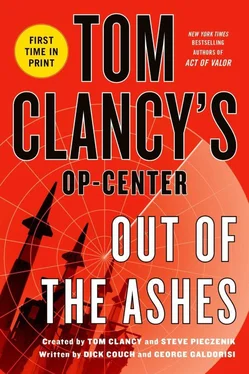Sandee’s grades and her eye-watering SAT scores made her a competitive candidate for admission to the U.S. Naval Academy, and she easily secured an appointment from her congresswoman. At the Academy she was a good student and fit into the sports culture there by running cross country and was team captain of the women’s varsity cross country team her senior year. Once she started running cross country and winning meets her confidence soared and any shyness she had as a younger girl disappeared. She was a blue-chip athlete at a Division One college; she was good — damn good — and she knew it. Call it confidence, call it attitude, but by her senior year at the Academy she had it. Don’t mess with me or I’ll run you into the dirt . Introduced to all branches of the Navy during the school’s summer training programs, she chose Naval Aviation because it seemed to offer the best promise of high adventure. Now she was living that adventure. The landing safety officer’s voice was insistent.
“Ah, Swampfox 248, LSO here. We’re having difficulty holding a heading. Conditions are worsening. You want to abort?”
“Negative, LSO,” Sandee heard herself say. She was so in the flow and one with the machine that a part of her neither heard nor registered the exchange with Normandy ’s landing safety officer, one of her fellow pilots.
When she was in the zone, all her senses sharpened. She could feel the sweat that collected between her lip and her lip microphone; she could smell and taste the burning jet fuel; she could even, without glancing over at her copilot, smell the stench of fear that came from him. If it was his call, they’d be back on the carrier waiting for better weather, but more than all this, she could feel the helo — she was one with the machine.
“Ah, 248, you sure about this?”
“Affirmative.”
Then, like John Williams during the adagio, she took the MH-60R to a hover over the ship’s bucking and kicking landing area and held it there while the flight deck crew hooked up the recovery-assist cable. With the RA cable assisting, it was Sandee’s task to finely maneuver the twenty-two-thousand-pound helicopter, with its eighteen-inch landing probe, into the three-foot-by-four-foot hydraulic jaws of the remote securing device — the “mousetrap”—attached to the ship’s flight deck.
The LSO, the senior pilot on Sandee’s otherwise all-male-pilot detachment, simply shook his head in awe. Only a fellow helo pilot could appreciate what he had just seen; only a helo pilot of immense skill could make that approach and hover in this kind of weather and make it look easy. On the one hand, it was pure, unbiased respect and admiration. On the other, it was a prayer. Why, God, did you give her that much talent? Why not me?
Now he knew it was his job to help her get her bird on deck.
“Left two, left one, steady. Land now! Down, down, down. Up, up, UP! Come left a little bit … easy with it … OK … steady … steady !”
Laurie Phillips couldn’t hear the calls from the landing safety officer, and it was just as well. The swirling winds, pounding rain, and gyrating flight deck were forcing the LSO to make his calls loudly, insistently, and increasingly rapidly. With each jerk of the aircraft, Laurie was tossed about in her seat, either bumping into the aircraft’s haze-gray soundproofing or knocking her knees against the helo crewman’s console in front of her.
Her short conversation with the helo’s commander right before they lifted off suddenly sounded prescient.
“All right,” Lieutenant Sandee Barron had begun winking at Laurie, “I’ll be your captain today. No smoking. Fasten your seat belt. Turn off all electronic devices. All you have to do is sit back and enjoy the flight. Normandy is less than twenty miles away, out ahead of the carrier.”
Then Barron’s face had hardened a bit. “Seriously, the weather conditions are marginal, and this will be a bit of a rough flight. But I’ve done this a lot, and I’m damn good at it. It’ll be piece of cake,” Barron had concluded with another wink.
Laurie, terrified after her COD experience, felt reassured. What was it about this pilot? She had been vaguely aware the Navy had a number of female aviators, but she had never met one. She didn’t sound cocky, but she did sound confident.
Laurie willed herself to look out the window on her left and down at Normandy ’s pitching flight deck. She’d flown in Marine Corps helos and MV-22 Ospreys during her career in uniform, but they had been based on land, not on ships bobbing around like bathtub toys. Laurie was certain that at any moment their bird would crash on the pitching flight deck below. She willed her body to be transposed back to her warm office and tiny desk at the Center for Naval Analyses headquarters in Alexandria, Virginia, or anywhere else but here.
“Left one. Come left. You’re drifting right. Stop right. Don’t climb. You’re hooked on! Easy, EASY with the power.”
The LSO continued to talk, but Sandee Barron no longer heard him; it was just her, the helo, and the moving deck.
You’re over the circle. Do it! The muscle memory, the thousand-plus hours of flying, the instincts, took over, and Sandee planted the MH-60R hard in the circle on Normandy ’s flight deck.
Laurie finally exhaled. She was totally disoriented as she found herself in her second completely unfamiliar environment in the last several days. The helo crewman unstrapped her from her seat, grabbed her right arm, and helped her climb out of the bird.
As she staggered out of the helicopter, Laurie’s right hand was gripped by the outstretched, outsized hand of Captain Pete Blackman. “Welcome aboard, shipmate!” Blackman shouted over the roar of the helicopter’s slapping blades and howling T700-GE-401C engines.
“Glad to be here,” Laurie lied. It was the captain’s custom to greet every new “shipmate” personally and administer a firm handshake. It let them know who was in charge right away.
As Blackman continued to pump Laurie’s hand, the pilots chopped the throttles, applied the helo’s rotor brake, and jumped out of the bird. Once out of the helo, Sandee Barron headed right for Laurie.
“Come on, I’ll show you where our stateroom is. The flight deck guys will bring your gear down in a minute,” her roommate-to-be said, rescuing Laurie from Blackman’s handshake.
“Thanks,” Laurie replied, as she tried to stand erect on wobbly legs.
Once inside the skin of the ship, Sandee Barron stopped.
“So, Ms. Phillips, looks like we’re going to be roommates.”
“So I’m told … and it’s Laurie, please.”
“OK, Laurie, fair enough. My name’s Sandee.”
“The captain seems … well … enthusiastic,” Laurie said as Sandee led her down a ladder to the deck below the flight deck.
“Yeah, captain’s a piece of work,” Barron said over her shoulder as they continued walking, “but you didn’t hear that from me. He won’t say much to you on the ship, but get him on liberty and put a few beers in him and he’ll open up and tell you more than you want to know. He was a big football star at the Naval Academy, a linebacker. You could probably guess just by looking at him.”
“He does seem a little larger than life.”
“Yep, but I think you’ll find him a pretty straight guy. We’re lucky, I guess. He grinds the ship’s company officers, but leaves us Airedales pretty much alone. We just try to keep a low profile and do our mission.”
The inquisitive look on her face told Sandee she ought to enlighten her new roommate further. She stopped walking, turned around, and looked directly at Laurie. “Look, you gotta understand something. The captain didn’t grow up with a silver spoon in his mouth. He came from some small mill town in North Carolina, and he only got out of there because he was recruited by the Academy to play football. This is his big chance as captain of Normandy . If he does a good job, he’ll probably get promoted and get his admiral’s stars. If he doesn’t, he’s yesterday’s news. He’s a little rough around the edges, but a ship’s CO has incredible responsibilities. If just one of us screws up badly, it’s not only our career, but his, too.”
Читать дальше












